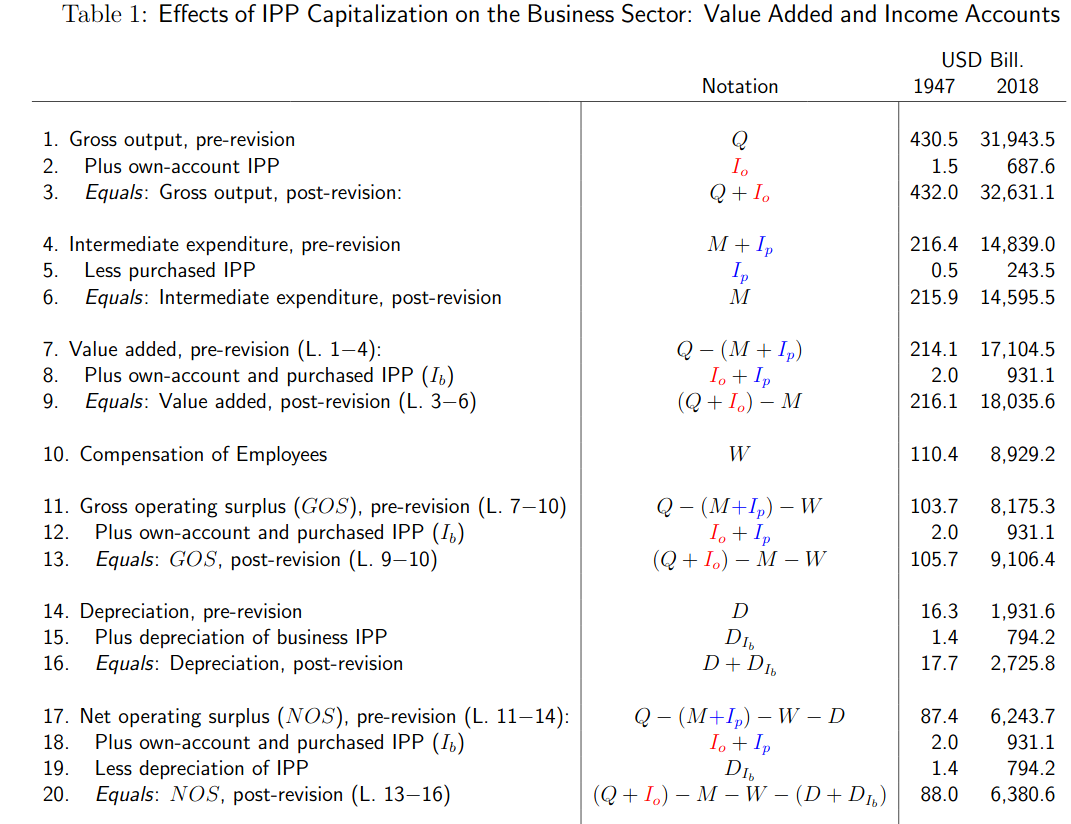Home › Forum › Political Economy › Intellectual property and the capitalist share of income › Reply To: Intellectual property and the capitalist share of income
Something else to note. There is an imputation trick here that is part of neoclassical analysis. The authors partition ‘ambiguous’ income (i.e. proprietors) into a capital and labor component, based on the fraction found in the rest of the economy. From a CasP standpoint this is dubious.
Without this imputation, it seems unlikely that any BEA revisions could significantly change the labor share of income. Here, for instance, is employees share of US national income. I think this is an unambiguous definition of ‘labor share’:

It has varied over the last century by 10 percentage points. Now look at Table 1 in the Koh et al paper:

The important numbers here are the original and revised numbers for value added (lines 7 and 9). The addition of own-account IPP changes value add by about 5%, which then changes the employees share of value added by about 2.5%. That’s hardly enough to alter the trends in the Figure above.
So the imputation of the labor share of proprietor income seems to be important. And this imputation, we should remember, is completely neoclassical. It assumes you can attribute a proprietors income to a labor component and a capital component. Pretty silly.
Jonathan, I too am confused about how in-house IPP costs were not originally part of GDP. That said, I find the whole distinction between intermediate and final goods confusing and arbitrary. I would much rather work with distributional accounts that are concerned only with income, not ‘production’.
One final thought. The ultimate test here would be to go back and find vintage data from before the revisions and see how it differs from the modern data.
- This reply was modified 4 years, 7 months ago by Blair Fix.
